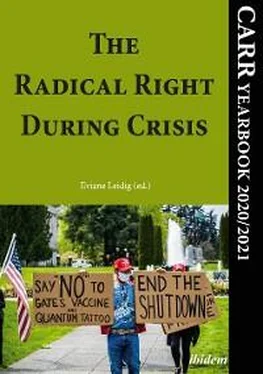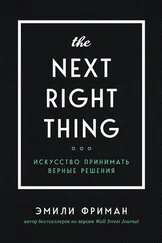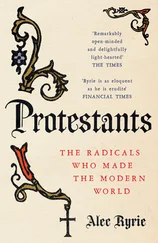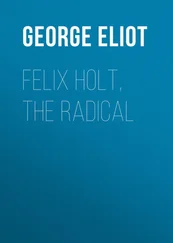10Valery Engel, “Russia Needs a New National Idea”, Fair Observer, November 5, 2019, https://www.fairobserver.com/region/europe/putin-russia-national-idea-democracy-news-16251/
11Валерий Тишков, Facebook, February 18, 2020, https://www.facebook.com/ValeryTishkovRAN/posts/2696774080441929?comment_id=2696779307108073.
12Валерий Тишков, Facebook, February 18, 2020.
13Sergey Markedonov, Facebook, February 11, 2020.
14Wikipedia, “Decembrist revolt”, https://en.wikipedia.org/wiki/Decembrist_revolt.
15“Конституция и русский вопрос,” Интеллектуальная среда , February 24, 2020.
16Sergey Markedonov, Facebook, February 11, 2020.
17H. B. Еремина and C. Середенко, “Конституционный национализм в современной Европе: новый уровень угроз,” Социодинамика 3 (2014): 1–42, https://nbpublish.com/library_read_article.php?id=11170.
18Tylor Cowen, “Europe's Muslims Are More Integrated Than You Think,” Bloomberg, September 7, 2017, https://www.bloomberg.com/opinion/articles/2017-09-07/europe-s-muslims-are-more-integrated-than-you-think
19Valery Engel, “Can Multiculturalism Triumph in Europe?”, Fair Observer, March 11, 2019, https://www.fairobserver.com/region/europe/democracy-radicalism-integration-europe-news-14412/
20Указ Президента РФ от 19.12.2012 N 1666 (ред. от 06.12.2018) “О Стратегии государственной национальной политики Российской Федерации на период до 2025 года,” https://www.consultant.ru/cons/cgi/online.cgi?req=doc&base=LAW&n=312941&fld=134&dst=100017,0&rnd=0.8950725120114815#05636092251999416
21Engel, “Can Multiculturalism Triumph in Europe?”.
22Markedonov, Facebook.
23“С кем станцует Путин, чтобы заманить россиян на очередные перевыборы себя,” Свободная пресса, February 18, 2020, https://19rus.info/index.php/vlast-i-politika/item/120604-s-kem-stantsuet-putin-chtoby-zamanit-rossiyan-na-ocherednye-perevybory-sebya.
24Федор Крашенинников, “Зачем Путину голосование по поправкам в Конституцию,” Ведомости , January 29, 2020, https://www.vedomosti.ru/opinion/columns/2020/01/29/821687-zachem-putinu.
25Валерий Энгель, “Консерватизм-Патриотизм-Державность или что объединяет россиян. 20 лет программному тезису о российской нации,” Гражданская нация , https://www.ru.civic-nation.org/publikatsii/20-let-programmnomu-tezisu-o-rossiyskoy-natsii/.
Eco-fascism “Proper”: The Curious Case of Greenline Front
Bernhard Forchtner and Balša Lubarda
Eco-fascism, mostly associated with the “green wing” in historical National Socialism 1and neo-Malthusian authoritarians of the 1960s/70s, is an iridescent concept that signifies the preoccupation of extreme right actors with environmentalist concerns. As such, it is also a highly loaded term, used both academically and as a slur. The term has recently attracted particular attention due to manifestos linked to radical right terrorist attacks in Christchurch and El Paso. 2Indeed, the Christchurch shooter appears to identify himself as an ‘Ethno-nationalist Eco-fascist’, calling for ‘Ethnic autonomy for all peoples with a focus on the preservation of nature, and the natural order’.
However, eco-fascism is in fact a fringe phenomenon which has had a lasting political impact neither on mainstream politics nor on the politics of the radical right. Given this, it seems that eco-fascism should not dominate our understanding of the wider radical right’s relationship with nature. 3Indeed, this relationship is multifaceted due to the array of radical right actors who engage in it: from anti-liberal actors to outright anti-democratic ones. 4While the former might simply celebrate “the beauty” of national landscapes and the symbolic tie between land and people, as well as the land’s economic significance for “the people”, eco-fascists undoubtedly belong to the latter. Accordingly, they also claim that race and racial survival are intrinsically linked to this Volk’s natural environment and its despoliation. Specific arguments resulting from such a stance include, for example, warnings against overpopulation and opposition to immigration from poorer countries with (on average) lower environmental footprints. Illustratively, the Christchurch terrorist’s manifesto claims: ‘Europeans are one of the groups that are not overpopulating the world. The invaders are the ones over-populating the world. Kill the invaders, kill the overpopulation and by doing so save the environment’.
It is against this background that eco-fascism still warrants attention. This means that by studying eco-fascists it is possible to understand particularities associated with radical right articulations of the natural environment. In order to grasp this contemporary, 21st century eco-fascism, this brief article looks at one of the most notorious eco-fascist actors, the recently defunct Greenline Front (GLF).
Eco-fascist ideas and practices
GLF is an international network which originated in Eastern Europe, with chapters in a variety of countries such as Argentina, Belarus, Chile, Germany, Italy, Poland, Russia, Serbia, Spain, and Switzerland. Operating as a loose network, GLF is held together by a shared ideological programme as well as a common “branding”.
The latter is visible in their appropriation of the life rune and/or the Black Sun as their logotypes, 5through which GLF’s chapters have been recognizable at marches and other offline activities, as well as in their online communication. In addition, such branding points straight to the group’s ideological core which is concisely visible on their international webpage. 6
The webpage offers not only several posts conveying an (eco-)fascist message, but also a mission statement which serves as an exemplary formulation of the eco-fascist doctrine. According to it, GLF is a nationalist movement rejecting anthropocentrism and monotheism. By asserting the importance of Blood and Soil (‘Earth’s being not just a lifeless piece of stone, but the Mother of every creature alive, mother of humanity’), 7GLF accentuates the naturalistic-organicistic imaginary of beings rooted in the nation’s soil. This includes asserting the importance of intergenerational continuity and a bond with nature, a bond which should not be overstretched as a condemnation of overpopulation, as the group’s 10-points manifesto makes clear. 8Building on these sentiments, GLF presents itself as the “ecological alternative” to profit-seeking individualism and materialism, and also incorporates animal ethics through veganism and calls for animal liberation. 9Furthermore, the content posted on GLF page outlets makes references to Pentti Linkola, the recently deceased Finnish eco-fascist deep ecologist; 10the American National Socialist author William Pierce; 11 Hitler’s Priestess 12Savitri Devi; 13and to notable Nazis such as Walther Darré 14or Alwin Seifert, who is referred to as the “First German Environmentalist”. 15As a matter of fact, the German racial policies of the 1930s are described as ‘the attempt to resurface the Weltanschauung of the ancient Germanic people’. 16Consequently, GLF rejects democracy (the “religion of death”) and embraces violence as an indispensable part of the struggle for restoring an imagined equilibrium in and with nature.
Читать дальше












